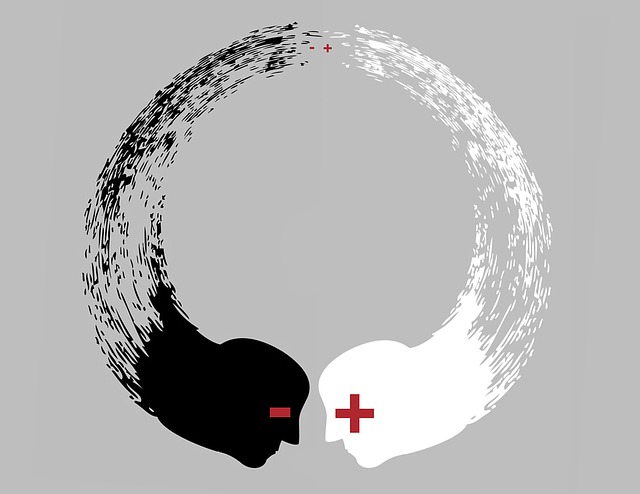Michael Singer provided a podcast discussion on the topic, Ceasing to be Caught in the Waters of the Mind. He uses the analogy of a bird floating on the waters of a lake, enjoying the smoothness and serenity of its existence. When the wind whips up waves, the bird needs to ride them out, not fighting them nor imagining that they can control all the forces that create the waves. So it is with us, Michael suggests that we need to relax in the face of the ripples of life when confronted with disappointments, setbacks, hurts over personal slights and grief over the loss of a loved one. He argues that if we try to fight these ripples by suppressing the natural reactions of our mind and heart, we will temporarily suppress them and their effects, only to have them resurface in a more damaging way later on.
Primary versus secondary ripples
Primary ripples are a natural part of the order of things and a natural consequence of our human condition. We do experience disturbing thoughts in the face of the natural ripples of life but the major problem arises when we create secondary ripples by being caught up in anger, resentment, denial or any other emotion that takes us away from experiencing the primary ripple that set our response, of mind and heart, in motion. Michael asserts that the real damage to our peace and tranquility is not caused by the primary ripples but by the secondary ripples that we create. We can even become angry about our anger, resentful about our resentment or indulge in any other consequential emotion that denies the impact of the primary ripple and enables us to avoid our discomfiture. Michael provides a guided journal for writing practices to enable us to experience the freedom of journeying beyond ourselves and our tendency to create secondary ripples.
Seeking comfort
When we are disturbed by the natural ripples of life, rather than resting quietly and relaxing so that the ripples pass by, we often seek out comforts that are designed to avoid the pain of our disturbance. We can turn to food or drink, seek to have people say nice things about us, pursue our thirst for acquisitions, seek a better job or leave a relationship because the other party does not conform to our expectations. We try to control our world, avoid the pain and hurt and seek relief in what makes us feel comfortable – all the while denying the reality of the primary ripples and their effects on our mind and heart. We try to stop the ripples rather than riding them out and acknowledging that they will eventually pass. Even grief or boredom too will pass if we accept the reality of loss or the momentary absence of stimulation.
Trying to manipulate the outside world to avoid discomfort
We can indulge in complaining; self-protective stories like, “Why me…what have I done to deserve this!’; wanting other people to change to conform to our expectations; or taking inappropriate action that aggravates the situation (e.g. road rage, harbouring hurt and resentment). A recent example of trying to manipulate the outside world to restore comfort in the face of an uncomfortable situation was highlighted by Dr. Grant, an emergency department doctor in Victoria, Australia.
Dr. Grant wrote about the sense of entitlement driving construction workers to obstruct traffic in Victoria because they were now prevented from using their “tea rooms” because of concerns about potential transmission of COVID-19 infection. She pointed out with a graphic photo of herself at the end of a day’s work, the physical toll and emotional drain of working with COVID-19 patents – causing personal deprivations for more than two years, including having no formal place to eat lunch. The construction workers are trying to manipulate the outside world so that they do not have to experience the discomfort of losing their tea rooms.
Reflection
Michaels’s core message is the “world is unfolding in front of us” and there is a lot of things and forces that we have no control over. Instead of suppressing our discomfort, he suggests that we “become comfortable” with the different states we experience, both in our mind and heart, when we encounter the ripples of life. This accords with the exhortation by Karla McLaren to understand and experience the wisdom of difficult emotions.
Michael encourages us not to be caught up in the waters of our mind – not to be caught up in turbulence of our own making, the secondary ripples that we can create through our own efforts to replace disturbance in our mind and heart with feelings of comfort that we create artificially. He offers an online course, Living from a Place of Surrender: The Untethered Soul in Action, that incorporates journalling for self-reflection and training videos.
As we grow in mindfulness through meditation and mindfulness practices such as journalling, we will be better able to rest and relax in the face of disturbance caused by primary ripples, gain insight into how we personally create secondary ripples and become comfortable with the different natural states of our mind and heart.
___________________________________________
Image by silviarita from Pixabay
By Ron Passfield – Copyright (Creative Commons license, Attribution–Non Commercial–No Derivatives)
Disclosure: If you purchase a product through this site, I may earn a commission which will help to pay for the site, the associated Meetup group, and the resources to support the blog.




